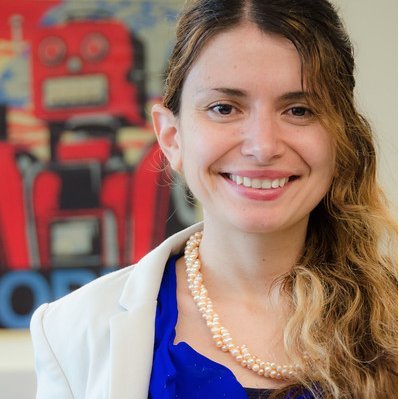
EAAMO colloquium SERIES
Upcoming Events

Justine Hastings: "Fact-Based Policy: How Do States and Local Governments Accomplish It?"
There is growing demand for a genuinely accountable government which, even with limited resources, delivers programs and policies with meaningful, measurable impact. Rapid advances in technology support the use of data and science in the private sector to develop insights about what people need, innovate products and policies to meet those needs, and then measure their success. Government has the potential to be similarly impactful, prompting recent federal and state calls for government to use a data-driven approach to produce efficient and effective policy solutions. But how can state and local governments use data and science to deliver improved results to their constituents? This talk will highlight the key challenges to creating and supporting fact-based policy at the state and local level, and will outline solutions and lessons learned from an innovative and scalable partnership model developed with the state of Rhode Island.

Matthew Jackson: "Using Gossips to Spread Information: Theory and Evidence from Two Randomized Controlled Trials"
Can we identify highly central individuals in a network without collecting network data, simply by asking community members? Can seeding information via such nominated individuals lead to significantly wider diffusion than {choosing} randomly chosen people, or even respected ones? In two separate large field experiments in India, we answer both questions in the affirmative. In particular, in 521 villages in Haryana, we provided information on monthly immunization camps to either randomly selected individuals (in some villages) or to individuals nominated by villagers as people who would be good at transmitting information (in other villages). We find that the number of children vaccinated every month is 22% higher in villages in which nominees received the information. We show that people's knowledge of who are highly central individuals and good seeds can be explained by a model in which community members simply track how often they hear gossip about others. Indeed, we find in a third dataset that nominated seeds are central in a network sense, {and are} not just those with many friends or in {powerful} positions.

Tawanna Dillahunt: "Designing and Envisioning Digital Tools for Low-resource Job Seekers"
Today's Information and Communication Technologies (ICTs) are designed to address one of society's most pressing problems---unemployment. These technologies support job seekers' ability to search for jobs, create resumes, highlight skills, share employment opportunities, and even transport to work and job counseling. However, the benefits of employment tools and technologies are unequally distributed and provide limited advantages for certain populations in our society. Like other valuable resources, ICTs have done little to support individuals with limited knowledge, skills, or experience to leverage them and who often face geographic and social isolation. Without an understanding of how people from low-resource settings use ICTs for job seeking, the same employment inequalities that occur offline will be repeated in online contexts. In this presentation, I will discuss the results of several studies that investigate how ICTs could improve employability, particularly among job seekers with limited digital skills, education, and income, and those who are geographically and socially isolated. I will also discuss new principles for fostering innovations among these populations and identify barriers for designers and technologists to address in the future.
Past Events
Recent talks
Medium Article - Dr. Lisa Cook
“Can mobile money be used to more efficiently and equitably distribute emergency funds to families affected by the COVID-19 economic crisis?”
Medium Article - Professor Bistra Dilkina


































